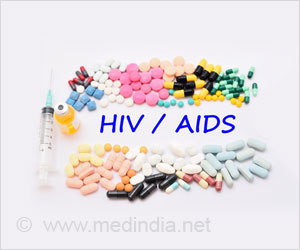Researchers at Yale University have developed synthetic molecules that could enhance the body's immune response to HIV and HIV-infected cells
Researchers at Yale University have developed synthetic molecules that could enhance the body's immune response to HIV and HIV-infected cells, and prostate cancer cells.
The findings by Yale researchers could lead to novel therapeutic approaches for these diseases.The molecules - called "antibody-recruiting molecule targeting HIV" (ARM-H) and "antibody-recruiting molecule targeting prostate cancer" (ARM-P) - work by binding simultaneously to an antibody already present in the bloodstream and to proteins on HIV, HIV-infected cells or cancer cells.
By coating these pathogens in antibodies, the molecules flag them as a threat and trigger the body's own immune response.
ARM-H molecules also bind to proteins on the outside of the virus and thus prevent healthy human cells from being infected.
"Instead of trying to kill the pathogens directly, these molecules manipulate our immune system to do something it wouldn't ordinarily do," said Dr. David Spiegel, the corresponding author of the study.
In contrast to other treatment options for HIV and cancer, the ARM-H and ARM-P molecules, which the team has begun testing in mice, are structurally simple, inexpensive to produce, and could in theory be taken in pill form, said Spiegel.
Advertisement
"This is an entirely new approach to treating these two diseases, which are extraordinarily important in terms of their impact on human health," said Spiegel.
Advertisement
Source-ANI
RAS















